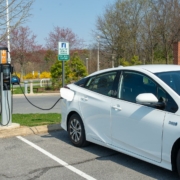The return of Striketober and why consumers should care

By Eden Iscil, Public Policy Manager
The National Consumers League has a long history of fighting for both consumers and workers alike. Founded 124 years ago, NCL’s first major policy accomplishments included the establishment of minimum wage laws and protections around child labor. In support of these goals, much of the League’s early years were centered around consumer boycotts of companies that treated their employees unfairly.
Today, NCL’s support of workers’ rights remains just as critical as we find ourselves in another October with truly historic labor action. Two years after “Striketober,” 75,000 healthcare workers at Kaiser Permanente walked off the job in the largest healthcare strike in history largely due to low pay and understaffing. At the same time, 160,000 actors belonging to SAG-AFTRA and 25,000 members of the United Auto Workers continue to strike. The Writers Guild of America recently secured significant gains after a months-long writers’ stoppage, and UPS agreed to better contracts for drivers after 340,000 Teamsters threatened to withhold their labor.
Beyond the benefits for all workers that the presence of strong unions provides, it’s also in consumers’ self-interest to support workers agitating for better employment terms. As consumers, we rely on these employees to safely fly passengers across the country, provide critical healthcare services, and raise the alarm over unsafe food production. In addition to the harm that results from jeopardizing workers’ safety, poor working conditions can lead to indefinite closures, potentially reducing the amount of product on the shelves. In all of these cases, unions help consumers by advocating for adequate staffing levels to prevent worker burnout, securing healthy workplace environments, and ensuring robust whistle-blower protections.
Even for less perilous industries (i.e. not flying a plane or driving a truck), consumers should support workers fighting for better employment conditions if only to safeguard the continuation of their favorite products. The arts—including television, movies, and music—provide invaluable comfort and entertainment, in addition to awakening us to new perspectives, ideas, and values. Despite consumers’ intense love for these forms of entertainment, writers, actors, and musicians continue to struggle in their fields for fair compensation, something that can threaten (or at the very least, doesn’t promote) the future creation of high-quality art.
Industry has always threatened to raise prices if they are forced to pay their employees more. Consumers should understand that this is a choice corporate executives can make—but it is not the only possible outcome. Rather than price gouging consumers, companies can reduce executive compensation to offset the costs of fair wages. General Motors, one of the targets of the UAW strike, pays its CEO 362 times what it pays its median worker. Starbucks, a company infamous for its illegal union-busting, paid its former CEO nearly 1,400 times what it paid its median employee in 2022.
For this year’s resurgence of Striketober, consumers should do their part in supporting workers. Try purchasing union-made goods, shopping at worker-owned cooperatives (a directory of local co-ops can be found here while a list of large chains is viewable here), and supporting non-profit news organizations.
























